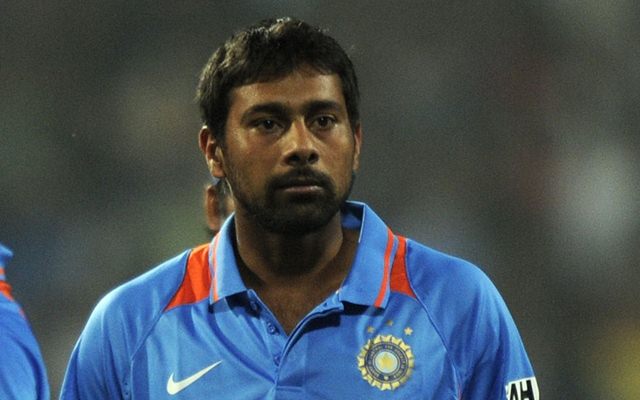Of mental health and cricket
Physical fitness in sports is paramount, but what is a fit body with an unfit mind?
View : 2.1K
14 Min Read


England all-rounder Ben Stokes’ indefinite break from all forms of cricket raises plenty of oft-ignored but pertinent questions. Stokes, a premier all-rounder and England’s all-format player, is not the first player to have faced these issues, and would not be the last either. Even as England and Wales Cricket Board’s support for arguably one of their most precious possessions is heartening to see, it does not quite answer every question that surely needs answers.
Stokes’ exit was a notable fourth in recent times after Women’s Tennis World No. 2 Naomi Osaka pulled out of the Wimbledon citing mental health issues, while US gymnast Simone Biles pulled the plugs on Tokyo Olympics 2020. Also, within a week of Stokes’ call, came New Zealand women team all-rounder Amelia Kerr’s withdrawal from the Whtie Ferns’ upcoming England tour owing to the same reason. Mental health issues are a serious challenge in today’s world, and living life in the midst of a global pandemic has only exacerbated that.
“Spending significant amounts of time away from family, with minimal freedoms, is extremely challenging. The cumulative effect of operating almost continuously in these environments over the last 16 months has had a major impact on everyone’s wellbeing,” Ashley Giles, England’s director of men’s cricket, said while addressing Stokes’s exit.
That, however, does not imply that issues of the mind were non-existent earlier. From Marcus Trescothick to Jonathan Trott, Glenn Maxwell to Will Pucovski, players of different ages and nationalities have encountered such problems. The origin of the current concept of mental health cannot be precisely ascertained, although assuming that its existence is as old as the existence of humanity might not be an unsafe one.
Despite that, it continues to be an issue that is not given the importance it deserves. The parochial understanding of it, in fact, intensifies the issue to a greater extent. A mistaken belief, especially in some Asian counties, is that ones with successful careers or handsome remunerations can never face mental health issues. By that grotesquely flawed logic, a player of Stokes’ stature mustn’t have ever even come close to doing what he did. However, Stokes is only one of a larger lot.
Many have been there
February 2006. England’s prolific opener Marcus Trescothick returned to his country in the middle of the India tour citing personal reasons, which were later found to be issues related to mental health. “I didn’t have a clue what was happening. I wasn’t aware of depression but whatever was going on, I didn’t want to have to say anything about it on TV,” Trescothick told Men’s Health magazine in 2016. “There was a lot of naivety and ignorance. People would say ‘What do you have to be depressed about? You play cricket for England. You travel the world. You get paid well.’ To try and experience the dark place when you’ve never experienced it is very tough,” Trescothick startlingly revealed, highlighting the manner in which such issues are perceived in society.
Mike Yardley, who left the 2011 World Cup midway through, and Steve Harmison, who feared never returning to the national team again as he went down from being the No. 1 bowler to being termed good for nothing, have also opened about facing problems in the past, apart from Kevin Pietersen, who blamed packed schedules pushing players into such territories.
Jonathan Trott, star England batsman and ex-captain, called quits on his Test career just one match into the 2013 Ashes series. Suffering from anxiety, Trott’s mental health deteriorated, and that was when he was averaging an excellent 86.42 against Australia. Trott, in his autobiography “Unguarded”, admitted that he “considered driving” his “car into the Thames or into a tree. That way I could get out of the ordeal.”
Trott was not the only one who had suicidal thoughts. Indian pacer Praveen Kumar, dejected for being forgotten so easily, nearly shot himself in 2019. “I told myself, ‘Kya hai yeh sab? Bas khatam karte hain,'” [What’s all this? Let me just end it] Kumar told the Indian Express last year. Had it not been for a photo of his smiling children that he stumbled upon before pulling the trigger, he might not have been amongst the world today.

Much like Indian pacer Mohammed Shami, who revealed that he thought of committing suicide three times due to stress and personal problems. “I thought of committing suicide three times during that period due to severe stress and personal problems. I was not thinking about cricket at all. We were living on the 24th floor. They (family) were scared I might jump from the balcony,” Shami revealed in an Instagram live with Rohit Sharma
Australian all-rounder Moises Henriques admitted having similar thoughts in 2017: “I remember driving down the M5 back home, doing 110 km/h, and I remember thinking to myself in the car, ‘If I just ran straight into this pole here, what would happen?” Henriques said and revealed he stopped himself, thinking about the injustice he would do to his partner and team members by taking such a step.
Indian skipper Virat Kohli had admitted he felt it was the end of the world for him when he endured a slump during the England tour in 2014. He had a disastrous tour, registering scores of 1, 8, 25, 0, 39, 28, 0,7, 6 and 20 in five Tests, averaging 13.50 in his 10 innings. He admitted to suffering from depression at that time. “Yes, I did [suffer from depression]. You just don’t understand how to get over it. That was a phase when I literally couldn’t do anything to overturn things…I felt like I was the loneliest guy in the world. And to be honest, I couldn’t have said ‘I’m not feeling great mentally and I need to get away from the game.’ Because you never know how that’s taken.”
Loneliness is often perceived by most in terms of the absence or presence of physical beings in the surroundings, but what about mental loneliness? Kohli had an answer: “Personally, for me, that was a revelation that you could feel that lonely even though you are a part of a big group”. It was, therefore, not surprising to see him publicly laud Glenn Maxwell for his “remarkable decision” to step away from the game, which, as per Kohli, was an example-setting move.
Issues like these have not been uncommon at the domestic level or players young into their international careers. Saurashtra’s senior batter Sheldon Jackson told CricTracker how he nearly gave up on the game due to “not being in the correct mental space”.
Queensland batter Luke Pomerbasch had quit cricket in 2014 after not being able to cope up with the rigours of professional cricket, whereas only weeks after Maxwell’s decision in 2019, Nic Maddinson withdrew from Australia A team, which was his second time taking a leave from the game on these accounts, the first being in 2017 soon after he made Test debut and then got dropped merely after three Tests. Then uncapped Will Pucovski opted out on two different occasions despite being on the verge of his Test debut: ahead of the Sri Lanka series, followed by Pakistan in 2019.
The list is long, and remember, these are only the instances known or brought by the sufferers into the public domain. How long this list precisely is, is as unascertainable as it gets.
Dealing with the mental demons

From backbreaking training to performance demands, self-doubt to insecurities, fear of failure to endless competition, sportspersons have not one but multiple reasons to fall prey to mental illnesses. Add to this the relentless public scrutiny thanks to the advent of social media, and the recipe of disaster gets complete. All it takes is perhaps one failure, and even the finest could be bashed in these times as people are becoming increasingly impatient.
The public-bashing phenomenon is rampant in India, where the unreasonably large pool of talent anyway does not make an elite athlete’s life easy. Neither do jam-packed cricket calendars. The booming growth in the frequency of cricket and the mushrooming of T20 leagues have left players with little to no wriggle room, which applies to both international and domestic cricketers.
For instance, the BCCI is set to conduct a whopping 2127 games in the 2021-22 season, while the ICC FTP’s have hardly any blank columns either. With ICC’s plans to have more multi-team events each year, the workload on each of the international teams will only multiply.
Notably, the is apex board has plans in place to host an event each year from 2023 onwards until 2031, a period which will have eight men’s ODI and T20 events, comprising three men’s ODI World Cups (2023, 2027, 2031), four ICC Men’s T20 World Cups (every even year), two ICC Men’s Champions Trophies (2025, 2029), apart from the World Test Championship running parallelly all this while, with finals to be played every odd year.
Not to mention that the years 2021 and 2022 are back-to-back Men’s T20 World Cup years, thanks to an invisible pathogen that keeps messing up the cricket calendars even more through constant rescheduling and postponements, alongside adding more logistical challenges.
The novel concept of bio-bubbles, social distancing and a host of protocols have multiplied these challenges as the players need to stay away from family and spend an unreasonable amount of time in isolated bubbles, which includes situations where they are not even allowed to step out of their rooms and mingle with each other.
Nevertheless, psychological problems can be prevented and cured provided they are identified and the remedies are initiated quickly. However, research shows that athletes have a poor understanding of mental health issues and are often unsure about where to seek support. There is little to no evidence that shows people involved in professional sports experience mental health issues more than others, however, as per the views of distinguished sports psychologists, the athletes are certainly not immune to such issues.
Further that Covid-19 has added mental misery into the sport is a fact attested by tons of cricketers, and there is sufficient literature and empirical research to establish the claim. As per a study issued by the Barcelona Institute for Global Health, “mental health problems caused by the Covid-19 pandemic crisis will be the next pandemic.” Dealing with these issues, therefore, becomes all the more crucial considering the times we live in. But it is not easy.
The taboos and stereotypes

Not that this requires any establishing, but mental health issues can be faced by anyone regardless of colour, class, sex, occupation, status or whatchamacallit. Despite that, the stigma due to negative stereotypes and ill notions around issues of the mind are aplenty. Especially in elite sports, where the players are revered and deified.
“Ben [Stokes] has shown tremendous courage to open up about his feelings and wellbeing,” Giles said on July 30. As much as Stokes’s “courage” must be lauded, we need to ask ourselves: why do sportspersons – or anyone for that matter – need to have “courage” to accept a mental health issue? That in itself highlights a part of the problem. Courage should not even be the last attribute required for letting the world know the issues of the mind. But that seems wishful thinking.
Then, a clichéd view is that men can’t be depressed and those who are, are weak. It is stereotypes like these that force the sufferers to go into a cocoon and eschew from making confessions, which further aggravates their problems. To answer what precisely was so courageous about Stokes’s admission, it was the courage of not worrying about being branded “weak” or “unmanly”: a fear that is often the primary reason behind the hesitancy of players from confessing such issues.
Many from the yesteryears have stated that they suffered from stress and anxiety issues but did not open up due to the fear of being labelled names. There is also fear in the minds of those in trouble about not being able to restore themselves to the positions they were in. If Virat Kohli, the captain of the nation with unarguably the mightiest cricket board, was unsure about how his admissions would be perceived, it simply illustrates the dire state of affairs.
Calls for professional help and lessons from the past

Indian cricketer Veda Krishnamurthy, who revealed that she has dealt with mental health issues in the past, called for a structured support system. “A lot of people who are playing cricket currently know what mental health is, but it is also important to accept that if the system is not doing anything to offer you mental-health assistance, you can and must find the support for yourself if you can afford it. I’ve had mental health issues and I’ve sought support to resolve them myself.”
On former England cricketer Mark Nicholas’ podcast ‘Not Just Cricket’, Kohli stated that he “strongly feel the need for professional help”. “…someone whom you can go to at any stage, have a conversation around and say ‘Listen this is what I am feeling, I am finding it hard to even go to sleep, I feel like I don’t want to wake up in the morning. I have no confidence in myself, what do I do?’ A lot of people suffer from that feeling for longer periods of time, it carries on for months, it carries on for a whole cricket season, people are not able to get out of it,” Kohli said.
“We have requested the BCCI for someone like a sports psychologist, who can travel with us. We have spoken to the coach as well. Nowadays, the pressure is high. You need someone to discuss things when they are not fine”, is what Indian cricketer Harmanpreet Kaur said after Sarah Taylor, one of the finest in the history of the game, announced her international retirement, having struggled with long-term anxiety.
While the issue still largely remains unaddressed in cricket-playing Asian and African countries and West Indies and New Zealand, two nations in England and Australia have rightly prioritized player welfare and have taken tiny but effective steps in the right direction, which includes the highly-controversial and debatable ECB policy of rest and rotation to ensure both the physical and mental well-being of England’s all-format players. While the views on that policy are divided, not least because of some evident drawbacks – a debate for another day – the intention behind it remains unquestionably bonafide.
The way forward

While social media and relentless competition have added a new dimension to cricketers’ vulnerabilities, the governing bodies of the game cannot be completely absolved. As far as efforts should be made to ensure that the cricketing system does not become a reason for a player to fall mentally ill, each board must prepare a plan for such crises. Whether true or not, let’s assume everyone is vulnerable.
For far too long such issues have been swept under the carpet, but discussions and awareness around mental health are at an all-time high ever since the arrival of the Covid-19 pandemic, which may have brought with it countless disadvantages, but a collateral advantage has been a welcoming sense of normality around the issues of the mind.
Physical fitness in sports is paramount, but what is a fit body with an unfit mind? The stories above are only a few examples to realize it is high time mental health is given the importance it deserves. And as individuals, let’s vow to never hesitate from lending an ear to the ones in need. Right now, we are far from there.
Download Our App